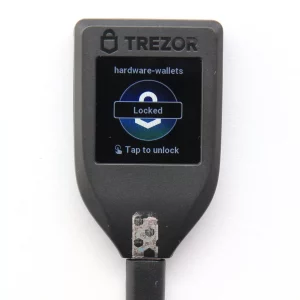In simple terms, a Bitcoin wallet is a digital tool that allows you to store, send, and receive Bitcoin securely. It consists of two key elements: a public address, which is like an account number, and a private key, serving as a password to access and manage the stored Bitcoin. There are various types of Bitcoin wallets, each with its own advantages and disadvantages.
Open-source software, like an open-source Bitcoin wallet, has its code publicly available for anyone to inspect. This transparency allows independent security experts to scrutinize the code for vulnerabilities. This makes open-source wallets more secure than closed source Bitcoin wallets. Additionally, open-source wallets often prioritize user control over their private keys.
Benefits of Open Source Bitcoin Wallets
Bitcoin Open source wallets offer several compelling advantages:
- Transparency: The open nature of the source code allows advanced users to verify the integrity of the wallet software to ensure that it operates as advertised without hidden functionalities or backdoors.
- Security: By allowing public scrutiny of the codebase, open source wallets can undergo rigorous security audits by experts and community members, thereby reducing the likelihood of vulnerabilities and malicious exploits.
- Customizability: Users can customize open source wallets to suit their specific requirements, whether it involves adding new features, enhancing privacy measures, or integrating with third-party services.
- Cost-Effectiveness: Open-source development often translates to free or lower-cost wallets.
- Community Support: Open source projects benefit from a vibrant community of developers, enthusiasts, and contributors who collaborate to maintain, improve, and support the software, fostering innovation and resilience.
Cons of Open Source Bitcoin Wallets
Despite their numerous advantages, open source Bitcoin wallets may also pose certain challenges:
- Complexity: Open-source wallets can be more complex to use compared to closed-source, user-friendly options.
- Technical Expertise: Troubleshooting issues or using advanced features might require some technical knowledge.
- Potential Vulnerabilities: While transparency can improve security, it can also expose potential vulnerabilities to malicious actors if not identified and addressed by the community.
- Dependency on Community: While community-driven development can be advantageous, it also means that the reliability and support of open source wallets may vary depending on the level of community engagement and contributions.
- Potential for Forks: The decentralized nature of open source projects means that anyone can fork the codebase to create their version of the wallet. While this fosters diversity and innovation, it can also fragment the user base and lead to confusion regarding which version to trust.
List of Best Open Source Bitcoin Wallets
Our list below covers mobile, desktop, and web browser wallets. Here’s our list of best open source hardware wallets
Here’s a curated list of the best open source wallets for Bitcoin across different platforms:
Open Source Mobile Wallets
- Phoenix Wallet – It is one of the best open source bitcoin wallet built on top of the Lightning Network to enable instant and low-cost transactions. It also supports Electrum server and Tor for advanced users.
- Electrum – A lightweight open source Bitcoin wallet platform known for its speed, security, and compatibility with hardware wallets. It also offers a range of advanced features, such as CoinJoin, Lightning transactions, two-factor authentication, and multi-signature.
- Samourai Wallet – Focused on privacy and security, Samourai Wallet offers features for advanced users like RBF, stealth mode, Tor, VPN, CoinJoin, and remote SMS commands to remotely erase Samourai Wallet from a lost or stolen phone.
- Green Wallet – Developed by Blockstream, Green Wallet is an open source mobile wallet supporting Liquid Network, 2-factor authentication, SegWit, and multi-signature support. Advanced users can integrate it with Blockstream Jade, Ledger, and Trezor hardware wallets.
- Mycelium – It is one of the oldest open source bitcoin wallets. It supports Tor, ProtonVPN, hardware wallet integration, and watch-only accounts. Moreover, its built-in peer to peer exchange allows you to buy and sell Bitcoin.
- Aqua Wallet is a Bitcoin open source wallet that you can use to hold, transact, and swap your Bitcoin across Bitcoin onchain, Lightning Network, and the Liquid Network.
- Muun – Muun is a bitcoin-only open-source wallet that supports the Lightning payments. It is a good choice for beginners and is available for Android and iOS.
Open Source Desktop Wallets
- Electrum – Besides its mobile version, Electrum also offers an open source desktop wallet for Windows, macOS, Linux, and Tails with advanced functionalities.
- Wasabi Wallet – Wasabi is an open-source and non-custodial bitcoin wallet for desktop with features such as CoinJoin, PayJoin, Tor, and hardware wallet compatibility.
- Armory – This is a unique open source Bitcoin wallet for desktop designed for advanced users and institutions. It is a full-featured wallet with features like cold storage, multi-signature support, and deterministic key generation.
- Bitcoin Core – The original Bitcoin wallet, Bitcoin Core, is an open source desktop client for advanced users for Windows, Mac, and Linux that offers full node capabilities.
- Sparrow is an open source desktop wallet with features suitable for advanced users.
- Green Wallet
Open Source Web Wallets
- Alby – Alby is a custodial, open source web wallet for Lightning and Nostr. The Alby browser extension that lets you send and receive Bitcoin instantly through the Lightning Network. It also provides a unique Lightning address for easy sharing. Note that wallets are the least safe wallets. You should have not significant of funds on such wallets.
- Coinos – This is an open source web wallet that supports on-chain, Lightning, and Liquid transactions. Moreover, the wallet makes it easy for merchants to receive retail payments without waiting for bank settlements or stress over chargebacks.
Our list covers mobile, desktop, and web browser wallets. Here’s our list of best open source hardware wallets
Which Open Source Bitcoin Wallet is the Best?
Determining the best open-source wallets depends on your level of experience with Bitcoin wallets, preferences, and use cases. While some users prioritize privacy and security above all else, others may value simplicity, compatibility, or specific features such as multi-signature support or Lightning Network integration.
For beginners dipping into the Bitcoin world, Muun and Phoenix could be the perfect picks. Phoenix requires a grasp of channel management fees and liquidity for its Lightning transactions, whereas Muun uses submarine swaps for lightning transactions in the background. If you seek a wallet enabling you to hold, transact, and swap your Bitcoin across the traditional blockchain (Bitcoin on-chain), Lightning Network, and the Liquid Network, then Green Wallet and Aqua Wallet present favorable options.
For users who prioritize security and privacy, Samourai Wallet offers a robust suite of features. It boasts functionalities like stealth mode to hide the Samourai Wallet app icon on your device’s home screen, integration with the Tor network for increased privacy, and even the ability to remotely wipe the wallet from a lost or stolen device.
Institutions with significant Bitcoin holdings might find Armory (dekstop) to be a compelling option. Armory caters to businesses with features like secure cold storage for offline Bitcoin and multi-signature support, which requires multiple approvals for transactions, adding an extra layer of security.
Finally, Linux users have excellent mobile and desktop wallet options available. Electrum (mobile and desktop) and Wasabi (desktop) are popular choices within the Linux community and offer a range of features for managing your Bitcoin holdings. If you’re a highly advanced user seeking maximum control, Bitcoin Core provides full node capabilities. Running a full node allows you to independently verify and validate all Bitcoin transactions on the network.
The choice of best open source wallet app ultimately rests with you, so consider your experience level and desired features to pick the optimal open source Bitcoin wallet for your needs.



























